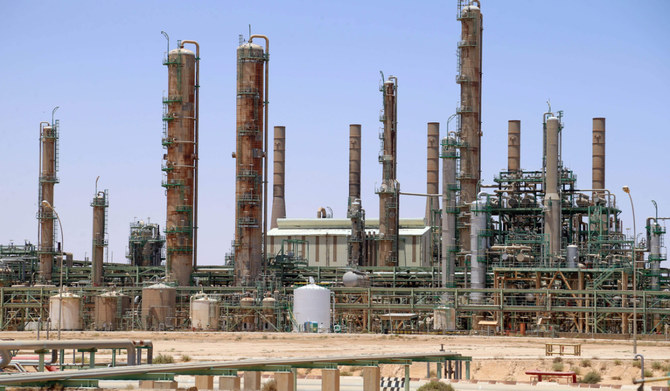TRIPOLI: Libya’s National Oil Corporation said Tuesday it was reducing oil production in the Al-Sharara oilfield, which provides a quarter of the country’s output, following an attempted shutdown by protesters.
The NOC announced in an official statement the “start of a partial reduction in production” from the oilfield.
It announced a “force majeure” following “protests from the Fezzan Movement,” a local group named after the southwestern Libya region in which the Al-Sharara field is located.
The statement did not elaborate on the protesters’ demands, but called on “the concerned parties to take into account the national interest” and support “efforts to stabilize and increase production.”
Videos released by local media on Monday showed a group of about 10 people who presented themselves as part of the Fezzan Movement blockading the entrance to the oilfield.
The group advocates for the Fezzan population’s economic and social rights, demanding inclusion in the energy sector’s job market.
Declaring force majeure allows parties to free themselves from contractual obligations when factors such as fighting or natural disasters make meeting them impossible.
The Al-Sharara field, in the desert 900 kilometers (560 miles) south of Tripoli, is operated by a joint venture between the NOC and four European companies.
Libya sits on Africa’s largest oil reserves, but protests and clashes between rival factions have caused repeated interruptions in crude production.
The war-torn North African country has been battered by armed conflict and political chaos since a NATO-backed uprising led to the toppling of dictator Muammar Qaddafi in 2011.
The country remains split between a UN-recognized government in the west and an eastern-based administration backed by military strongman Khalifa Haftar.
Oil revenues are vital to the economy, and the NOC is one of the few institutions in the troubled country to have escaped the wider divisions.
















